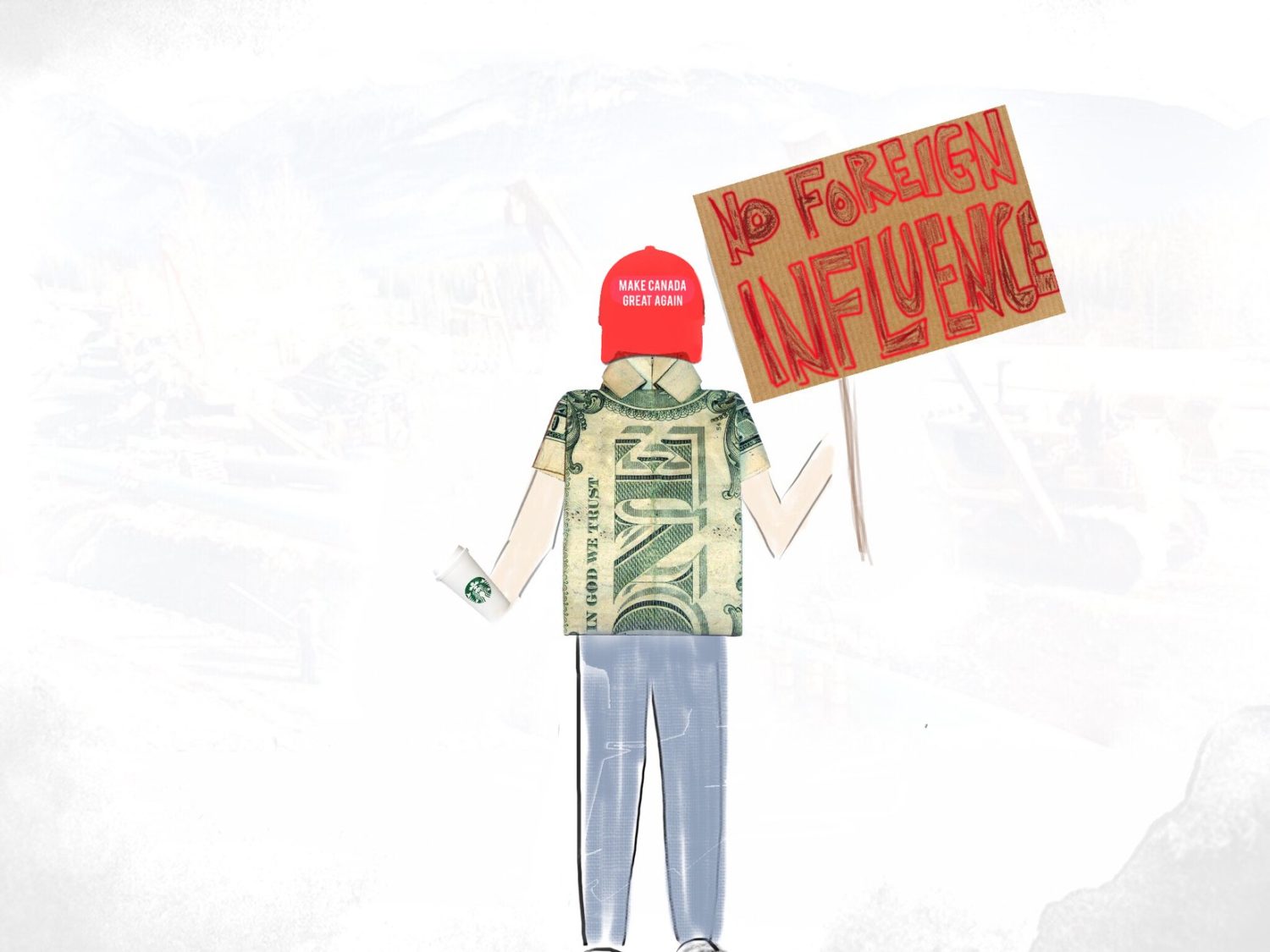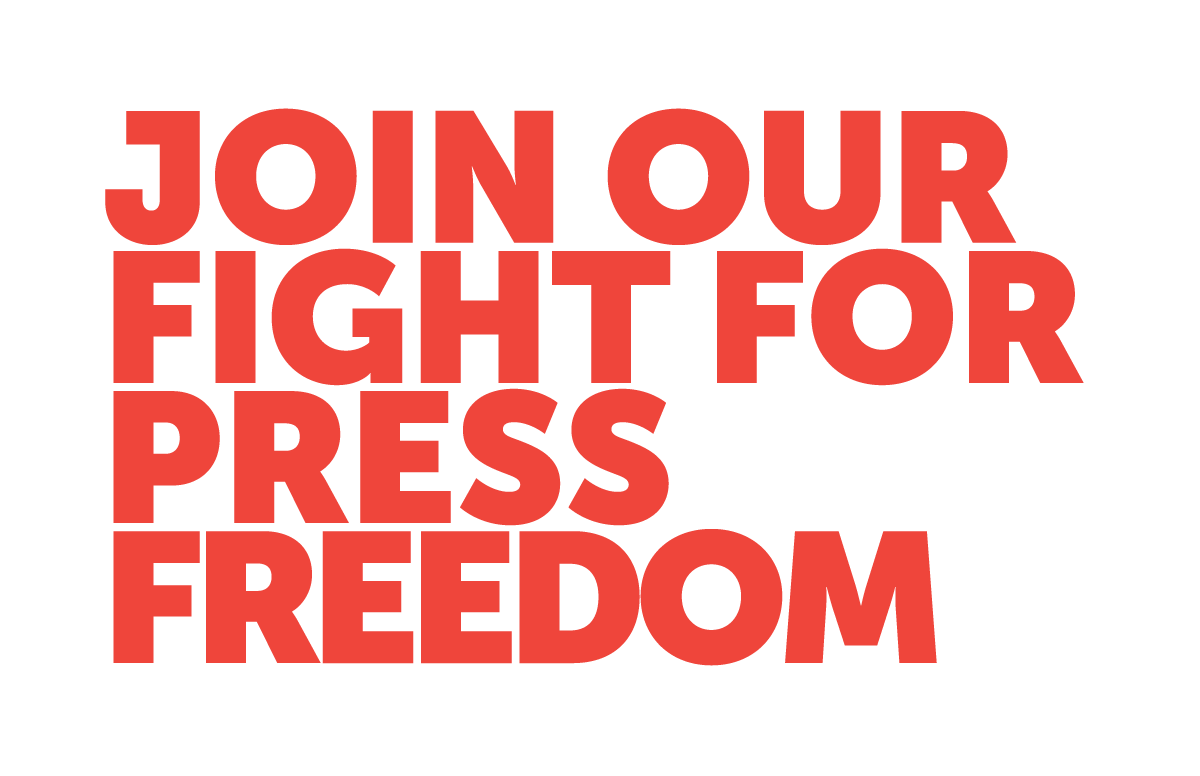On a certain level, Vivian Krause and her cadre are right when they accuse Canadian non-profits of taking foreign money. American philanthropists do give money to Canadian non-profits.
There’s just one thing: it’s neither surprising nor clandestine.
The success of their argument comes down to one simple trick: strip away all relevant context and then replace it with conspiracy.
So let’s start with some context.
In case you’ve been living in a bunker for the past few decades, it’s 2018 now and we live in a global society with global problems. Of course philanthropists who are interested in, say, slowing global climate change, protecting the boreal forest or saving wild salmon, are interested in work happening in Canada.
(If slowing global climate change or saving wild salmon don’t seem like worthwhile goals to you, congratulations, you’re part of just 11 per cent of Canadians who are utterly unmoved by science. You probably want to just stop reading right now to get a headstart on writing your hate mail.)
For the rest of you science-loving people, here are some fun facts:
- Canada’s boreal forest represents 25 per cent of the world’s remaining intact forest, leading the world alongside the Amazon.
- Canada has the third-largest proven oil reserve in the world, most of which is in the oilsands.
- Canada is the world’s fifth-largest producer and fourth-largest exporter of natural gas, according to Natural Resources Canada.
- Scientists say most of Canada’s oil will need to be left mostly unexploited if we’re to avoid baking ourselves — something almost every country in the world has committed to trying its utmost at.
These facts make Canada a really central player in the future of, well, this planet we live on. They also make for some legitimately difficult conversations about what we ought to do with that knowledge.
The reality is Canada is a major battleground in the fight against climate change right now. Oil and gas companies from all over the world are trying to extract our resources ASAP, scientists and public interest groups are arguing we need to stop expanding fossil fuel infrastructure, the traditional media is in a state of collapse and politicians are doing what they do best: playing political theatre.
All of this context is conveniently stripped away in a piece published in the National Post last week, with this headline: Canadians are realizing foreign groups sabotaged our energy economy — for no good reason.
The article’s author, Suzanne Anton, the former attorney general and minister of justice for British Columbia, invokes Krause-ian logic and manages to use the word “foreign” six times in this little ditty. (That’s a heckuva lot more than the word was used in former Natural Resource Minister Joe Oliver’s original ‘foreign-funded radicals’ open letter that catapulted this whole line of argument into the mainstream.)
Okay fiiine, we’ll talk about “foreign” influence if you insist, Ms. Anton.
Let’s start with the National Post itself. The National Post is owned by Postmedia, which is owned by U.S. hedge fund lenders who hold 98 per cent of Postmedia’s shares.
Next. While in power, Anton’s BC Liberals fought to keep the country’s weakest political donation rules intact. Those rules allowed donations from — you guessed it — foreigners, as well as unlimited donations from anyone, including corporations of the foreign variety to flood into the political arena and influence elected leaders.
Free from any restraints on donations, the BC Liberals raised $12 million in 2016, more money than any other provincial party in power in Canada — earning B.C. the dubious title of the “wild west” of political financing.
Between 2008 and 2015, 48 fossil fuel companies and associated industry groups donated $5.2 million to B.C. political parties, 92 per cent of which went to the BC Liberals.
If Anton was so concerned about foreign influence, you’d think she’d have a problem with all of this foreign money flowing into her party’s coffers, but nope. There was nary a squeak back then.
You’d also think Anton would be up in arms about Kinder Morgan Canada, the Canadian subsidiary of foreign-owned Kinder Morgan that is proposing an oil pipeline from Alberta’s oilsands to B.C.’s coast. The Texas-based company was co-founded by Richard Kinder, who served as president of Enron until 1996, and his fellow Enron alumnus Bill Morgan. Instead of being outraged, Anton’s Liberals accepted $560,000 in political donations from Kinder Morgan and other companies connected to the pipeline sector.
But let’s not stop there. What about the oilsands themselves? A 2012 analysis by ForestEthics found 71 per cent of the ownership of the oilsands was, well, foreign. In the past couple of years, international companies have sold off more than $30 billion of oilsands assets to Canadian-based (although not necessarily Canadian-owned) firms, shifting those numbers somewhat, but the point remains: where’s the outrage over foreign ownership of Canadian natural resources?
It doesn’t stop at oil. There are a bevy of foreign-owned LNG companies looking for a piece of B.C.’s coast, too. Anton was decidedly silent when Indonesian-based Woodfibre LNG donated $58,500 to the BC Liberals between 2014 and 2016 and later became embroiled in an illegal donations scandal.
So yes, money is crossing borders. Organizations like Greenpeace, WWF and 350.org fundraise globally and have offices in many countries. Is it surprising? Not in the slightest. Are you allowed to disagree with them? Sure. Just don’t base it on some dubious argument about how they’re funded.
If you rewind about a decade, you can find a much different narrative about philanthropic donations from abroad. In 2007, Conservative environment minister John Baird welcomed a $60 million contribution — mostly from U.S. philanthropists — to protect B.C.’s Great Bear Rainforest. He even credited the money as being crucial in Ottawa’s decision to contribute $30 million to the plan.
Philanthropists from around the world are interested in protecting the Great Bear Rainforest because it’s the largest intact coastal temperate rainforest in the world.
Philanthropists from around the world are interested in Canada maybe not plundering all of its oil and gas as fast as possible, because the impacts of climate change are felt, well, everywhere, especially in poorer countries.
Philanthropists from around the world are interested in funding non-profit journalism like ours because they care about things like conserving wildlife habitat and climate change. (We disclose our funders on our website and have an editorial independence policy in place to make it crystal clear that we cede no editorial control to those who support us.)
There are plenty of really difficult conversations we need to have as Canadians about our energy future. How environmental non-profits are being funded frankly isn’t one of them. But hey, it’s an effective distraction technique.
You see, while the B.C. media establishment was having a field day over a hum-drum internal strategy memo written by a Canadian 350.org staffer and the fact the Minister of Environment met with, ummm, environmentalists, Kinder Morgan was busy meeting with the federal government five times.
Kinder Morgan also didn’t waste any time in meeting with the new B.C. government after it came into office in July. Just three days after the NDP became government, Kinder Morgan lobbyist Mark Reder of FleishmanHillard HighRoad Corp. met with Attorney General David Eby, Minister of Environment and Climate Change Strategy George Heyman, Premier John Horgan’s chief of staff Geoff Meggs and with Minister of Energy, Mines and Petroleum Resources Michelle Mungall.
Which brings me to my final point: to paint the oil industry as an underdog in this discourse is absurd. Even Alberta Oil Magazine printed an opinion piece calling on the oil industry to stop paying attention to Krause’s conspiracy.
“Readers may find it difficult to believe that an industry which exported product worth $129 billion in 2014 — whose members include some of the biggest players in the national economy, players who could easily outspend American charities by a factor of a hundred — can feel like victims of the environmental movement, but they do,” Markham Hislop wrote.
Instead of working to minimize the concerns of citizens by painting them as “foreign funded activists,” we’d all be a lot better off if we spent that time thinking about why civil society is in such a state of distress over new fossil fuel infrastructure, such as Kinder Morgan’s Trans Mountain pipeline.
French thinker Rene Girard offers some insights there. He says a scapegoat removes the need to look at ourselves. In this case, there’s clearly something amongst us that really needs to be worked out.
Updated 8 a.m. March 30, 2018, to include additional information about donations from Kinder Morgan and its associates to the BC Liberals.
Updated 4 p.m. March 31, 2018, to indicate foreign ownership numbers in the Canadian oilsands have shifted in recent years.

